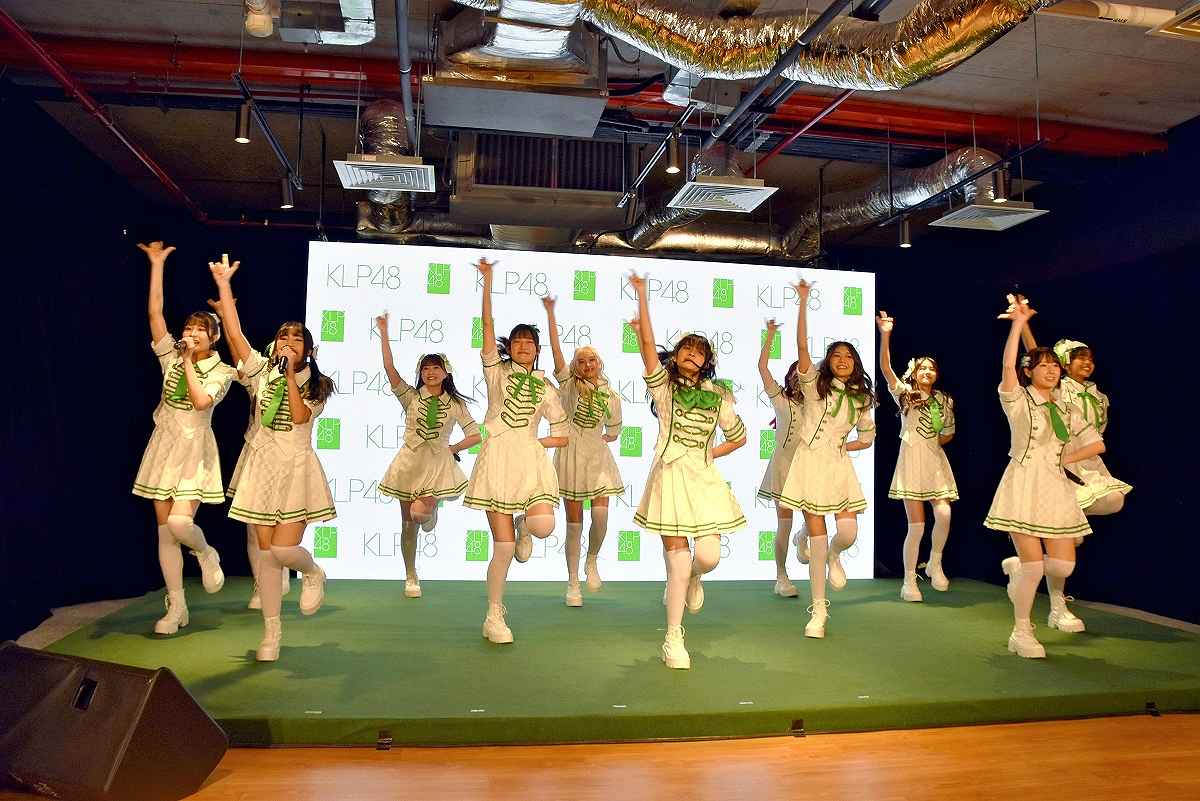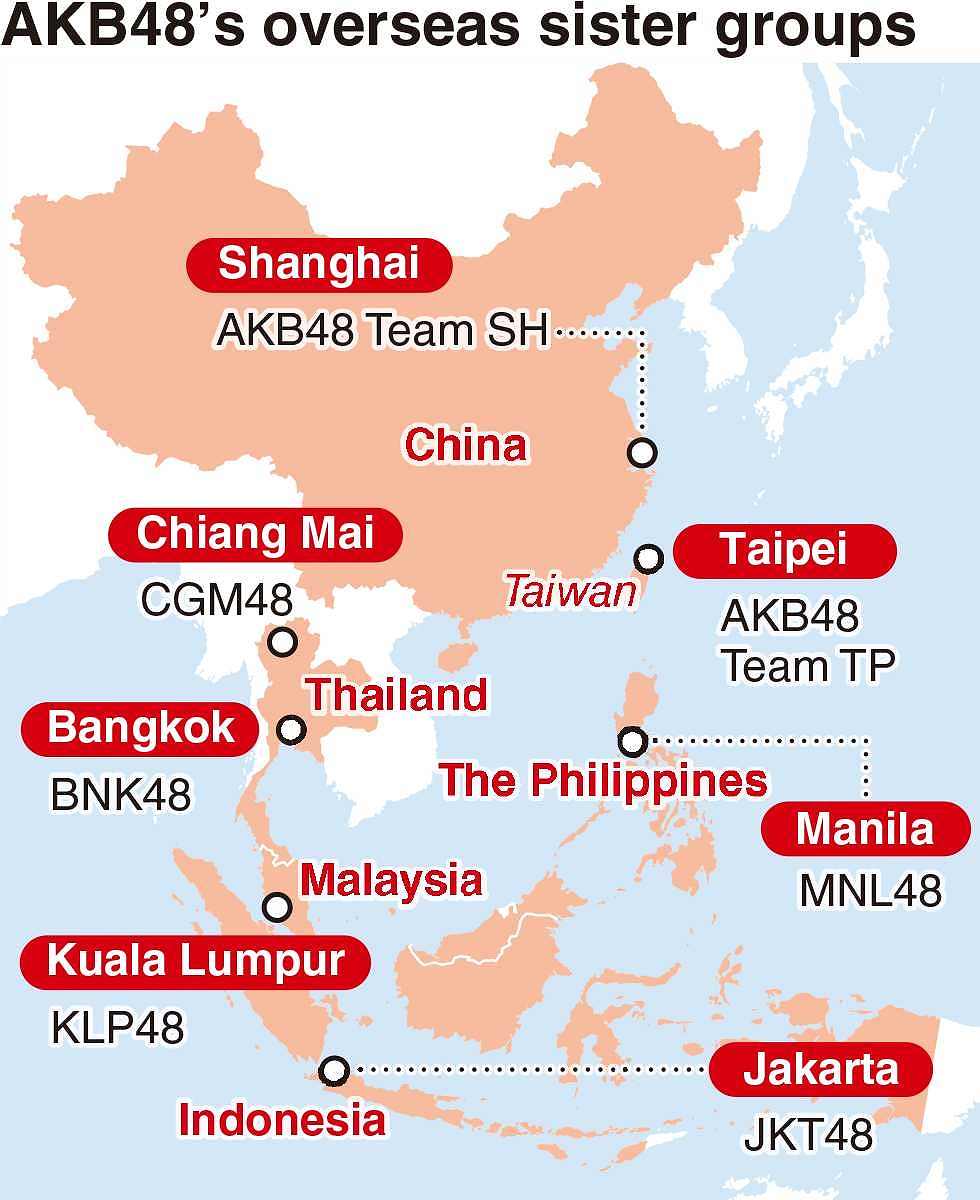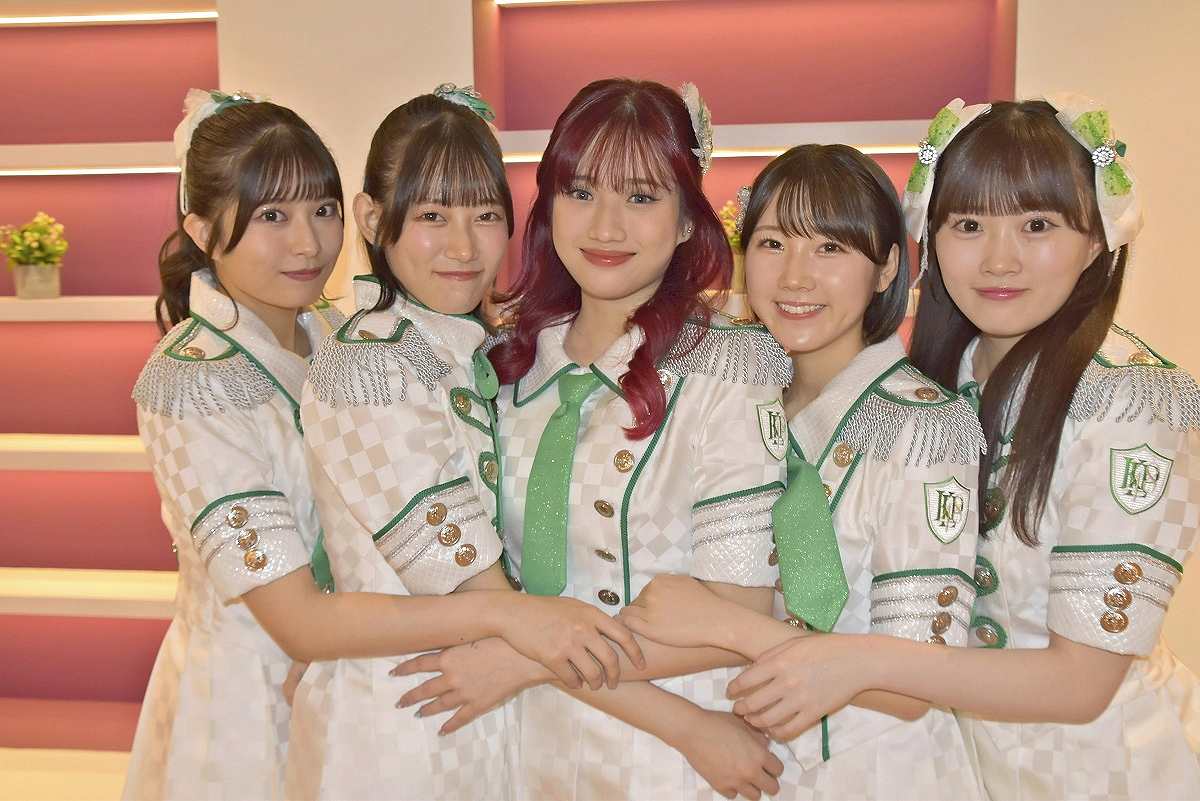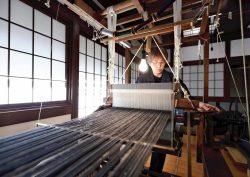
KLP48 members sing “Aitakatta” in Japanese at a press conference in Kuala Lumpur in July.
15:34 JST, October 4, 2024
KUALA LUMPUR — KLP48, the newest sister group of Japan’s pop idol group AKB48, debuted in the Malaysian capital this summer, joining other successful offshoots in Indonesia, Thailand, the Philippines, China and Taiwan.
“KLP48 has its eye on the international stage,” said Yip Jun Huei, 50, the director of the Malaysian girl band’s management company, at a press conference introducing the members in Kuala Lumpur on July 27.
The press event was attended by 22 media outlets, including TV stations and newspapers.
AKB48 debuted in 2005. In 2009, the pop idol group held its first “general election” to select which of its main members would sing a new song. In the same year, the group had its first concert at Nippon Budokan hall in Tokyo. Yip had been living in Japan when the group were on the rise.
“I heard about AKB48 everywhere,” he said. “I was moved by how the members worked hard to make their dreams come true.”
In January 2010, The Yomiuri Shimbun reported that Yasushi Akimoto, the general producer of AKB48, was approached by many companies overseas about purchasing his brand strategy for founding and managing similar groups.
The following year, the newspaper carried an article on the creation of AKB48’s first overseas offshoot, Jakarta’s JKT48 — which also adopted the Japanese idol group’s concept of an exclusive theater to meet fans.
Now there are seven sister groups overseas, speaking volumes for how AKB48 has built its own movement across Asian countries and regions, where K-pop is dominant.
“Our groups are not as polished as South Korean artists,” said Nariaki Terada, 54, the general producer of the overseas sister groups of AKB48. “Not all of our members are the best singers or dancers, but each of them has a distinct, individual personality. I imagine fans have high hopes for their limitless potential.”
JKT48’s 2nd golden age

In recent years, JKT48 has been enjoying what can be described as a second golden age. Following the pandemic, the Indonesian group made changes to their fan activities, such as implementing technology and traveling to various places to hold meet-and-greets.
As a result, the group’s popularity grew exponentially: Tickets for JKT48 concerts at venues seating about 5,000 sold out in a matter of minutes, and the group is securing sponsorships from some of Indonesia’s largest companies and organizations.
The birth of KLP48 in Indonesia’s neighbor Malaysia reflects such fervor.
“In Malaysia, the 48-series groups are very popular, particularly JKT48,” Yip said. “Many people were saying, ‘Why is there no ‘48 group’ here?’”
Since Malaysia has no pop idol culture like in Japan, auditions for KLP48 drew much attention, attracting about 3,000 applicants.
“I’ve loved singing and dancing ever since I was little,” said Foo Yi Shyan, 20, a KLP48 member. “I always hoped I would get a good opportunity.”
The lineup of the 13 first-generation members of the group is very diverse and international. They include seven from Malaysia, four from Japan and one each from Indonesia and Hong Kong. The Japanese members are Kokoa Kai, 20, who moved from STU48 — a group based in the Seto Inland Sea region — and three former AKB48 members: Yurina Gyoten, 25; Haruka Kurosu, 23; and Suzuha Yamane, 24.
Goal of reaching the world
“Many Malaysian people are multilingual, so the fact that the KLP48 members can speak various languages is advantageous for their international activities,” Yip said. “If they strive to offer hopes and dreams to people in Malaysia, they’ll naturally be able to energize people not just in Southeast Asia, but also all over the world.”
The youngest member was 15 years old. “Because of their diversity in age and language, I think they can eclipse even K-pop idols and push Japan’s unique idol culture to the center of the world,” he said.
Singing in Japanese

From left: Yurina Gyoten, Haruka Kurosu, Foo Yi Shyan, Kokoa Kai and Suzuha Yamane
The day of the press event, the 13 first-generation members of KLP48 took on various challenges. They sang AKB48’s major-label debut song “Aitakatta” (I wanted to see you) in Japanese, a language the majority of KLP48 members were unfamiliar with.
Kai was very touched.
“After we taught them Japanese, all of us started teaching each other our languages and having more conversations together,” she said. “It really hit home to me that what we’re doing is global.”
That evening, KLP48 made a surprise appearance at AKB48’s mini concert at the LaLaport shopping mall in Kuala Lumpur. The concert was part of a Bon odori traditional Japanese dance event and featured six AKB48 members, including Saho Iwatate, Hiyuka Sakagawa and Ayane Takahashi.

Some AKB48 members are seen at a mini concert at LaLaport shopping mall in Kuala Lumpur.
LaLaport’s rooftop event space was filled with the concert’s audience, showing AKB48’s popularity in Malaysia. When the intro of the first song, “Ponytail and Chouchou,” was played, the audience screamed “Mix!” — the “fanchant” for the song.
Toward the end of the concert, KLP48’s members were introduced onstage. The delighted crowd cheered, and the members greeted them spiritedly.

KLP48 members hand out flyers for their concert to a woman in Kuala Lumpur.
Later, the members handed out flyers for their Aug. 18 debut concert. Admittedly, while the group greeted people with smiles, quite a few just passed them by. It was like the early days of AKB48, when the group struggled to fill its exclusive theater, reminding me of the famous stories of the first-generation members handing out flyers to passersby on the street.
“The first-generation members are very important [for KLP48],” Terada said. “If they work hard and become popular locally, the group’s uniqueness will be known, and more local girls will try out to be in the second or the third generations.”
Let’s wait and see what kind of icons the multicultural 13 members will become.
Top Articles in Culture
-

BTS to Hold Comeback Concert in Seoul on March 21; Popular Boy Band Releases New Album to Signal Return
-

Director Naomi Kawase’s New Film Explores Heart Transplants in Japan, Production Involved Real Patients, Families
-

‘Jujutsu Kaisen’ Voice Actor Junya Enoki Discusses Rapid Action Scenes in Season 3, Airing Now
-

Tokyo Exhibition Offers Inside Look at Impressionism; 70 of 100 Works on ‘Interiors’ by Monet, Others on Loan from Paris
-

Traditional Japanese Silk Hakama Tradition Preserved by Sole Weaver in Sendai
JN ACCESS RANKING
-

Japan PM Takaichi’s Cabinet Resigns en Masse
-

Japan Institute to Use Domestic Commercial Optical Lattice Clock to Set Japan Standard Time
-

Israeli Ambassador to Japan Speaks about Japan’s Role in the Reconstruction of Gaza
-

Man Infected with Measles Reportedly Dined at Restaurant in Tokyo Station
-

Videos Plagiarized, Reposted with False Subtitles Claiming ‘Ryukyu Belongs to China’; Anti-China False Information Also Posted in Japan
























